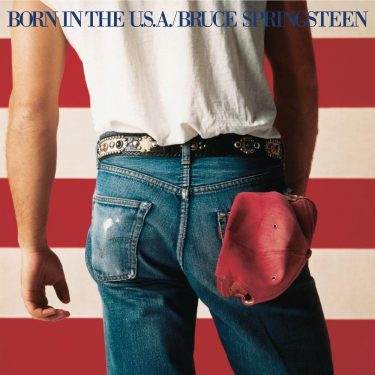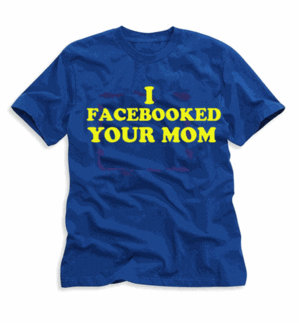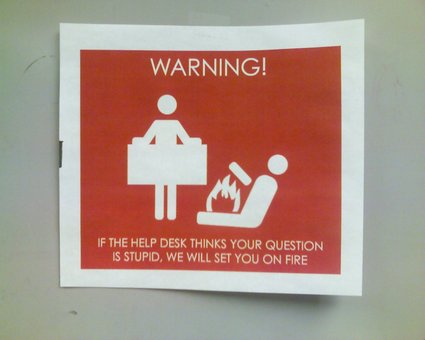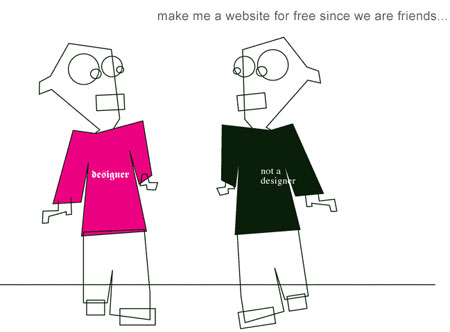
The story first published to blakesnow.com in the fall of 2012
With the help of two babysitting grandmas, a good job, and lots of decisiveness, Lindsey and I vacationed in Paris this year for her birthday. It was our first time to Yurp. (And I thought Boston was old!)
Travel bragging aside, I learned several things on the trip, including a few reoccurring generalizations. They are as follows: Continue reading…
Below is excerpted from Americana by Hampton Sides, which I recently enjoyed reading.
 A few years ago, I was passing through Marrakech on my way to the Sahara for a magazine assignment. One afternoon, outside La Mamounia Hotel, I was accosted, as all tourists inevitably are, by a “guide.” He was an intense young Berber with penetrating eyes and a brisk stride, one of those canny creatures of the bazaar. He wore a slick black suit.
A few years ago, I was passing through Marrakech on my way to the Sahara for a magazine assignment. One afternoon, outside La Mamounia Hotel, I was accosted, as all tourists inevitably are, by a “guide.” He was an intense young Berber with penetrating eyes and a brisk stride, one of those canny creatures of the bazaar. He wore a slick black suit.
“Hello, American?” he said, instantly sizing me up.
”No, no American,” I replied and walked on as fast as I could. Not that I’m embarrassed by my nationality, but I’d been told the guides assume all Americans are loaded. Besides, I didn’t want a guide that day, and this guy really seemed like an operator.
He looked puzzled. “American, yes? You need guide for the souk. We buy rugs now.”
I shook my head vigorously and picked up my step, but he persisted. “British. German, yes? Canadian?” I could almost hear his brain racing.
“I am Finnish,” I said. Someone had told me this always throws the guides. Continue reading…

Courtesy Shutterstock
This is a fascinating report by Time on cultural truth, incomplete science, better than nothing protection, and the cost of social distancing. “People look at me funny because I don’t wear a mask,” Chan says. “But I think the only thing that’s laughable is everyone buying into this excessive fear. People are being led by emotion, not science.”
PS—I’m grateful for public health officials and infectious disease doctors. Like vaccines, I believe they have our best interests in mind. What I’m not comfortable with is a nuclear social distancing response in reaction to a serious but still not that deadly virus (aka the vast majority of those infected by coronavirus live). It’s unfair to trump out a “flatten the curve at all costs” approach to something that doesn’t deserve such a dramatic response. Just because we could “flatten the curve” of 61,000 flu deaths last year with nuclear social distancing doesn’t mean we should. That’s why people are upset, scared, and confused. We can’t agree on the price to pay!

Getting an exact date, even for something as recently as 25 years ago, is hard to do, reports Frank Cifaldi. Not only do the victors get to write history, they often do it with faulty memories.
That said, I gotta think that remembering history is a lot more exact depending on the significance of the event — say remembering when a first shot was fired compared to the unassuming release of an iconic video game.
Still, humanity is lousy about keeping records. I’m no different.
From a CNN article on Why men are in trouble:
In 1950, 5% of men at the prime working age were unemployed. As of last year, 20% were not working, the highest ever recorded. Men still maintain a majority of the highest paid and most powerful occupations, but women are catching them and will soon be passing them if this trend continues.
The warning signs for men stretch far beyond their wallets. Men are more distant from a family or their children then they have ever been. The out-of-wedlock birthrate is more than 40% in America. In 1960, only 11% of children in the U.S. lived apart from their fathers. In 2010, that share had risen to 27%. Men are also less religious than ever before. According to Gallup polling, 39% of men reported attending church regularly in 2010, compared to 47% of women.
If accurate, those are some depressing figures.

More than a century ago, steel replaced iron as the world’s most popular metal (or “alloy” for you technophiles). The reason: Steel is incredibly strong, useful—and thanks to innovators such as Henry Bessemer and Andrew Carnegie—it’s cheaply made.
Better living through metallurgy. But generations after steel’s commoditization, might there be a superior replacement material? Continue reading…
Women have strengths that amaze men. They carry children, they carry hardships, they carry burdens, but they hold happiness, love and joy. They smile when they want to scream. They sing when they want to cry. They cry when they are happy, and laugh when they are nervous. Women wait by the phone for a “safe at home call” from a friend, after a snowy drive home. They are child care workers, executives, attorneys, stay-at-home moms, biker babes, and your neighbors. They wear suits, jeans, and they wear uniforms. They fight for what they believe in. They stand up against injustice. They go to the doctor with a frightened friend. Women are honest, loyal, and forgiving. They are smart-they know that knowledge is power. But they still know how to use their softer side to make a point. Women want to be the best for their family, their friends, and themselves. Their hearts break when a friend dies. They have sorrow at the loss of a family member, yet they are strong when they think there is no strength left. A woman can make a romantic evening unforgettable. Women come in all sizes, in all colors and shapes. They live in houses, apartments and cabins. They drive, fly, walk, run or e-mail you to show how much they care about you. The heart of a woman is what makes the world spin. Women do more than just give birth. They bring joy and hope. They give compassion and ideals. They give moral support to their family and friends. And all they want in return is a hug, a smile, and for you to do the same for people you come in contact with.
Men are good at lifting heavy things and killing spiders.
I found the above on my hard drive. Don’t remember where I found it.
 If you’re a Facebook user, you know how fun status updates can be. The good ones give you specific insight into what your friends are doing, how they are feeling, and what they really think. The bad ones are vague, cryptic, menial (you just checked into some hotel — no one cares), and wouldn’t know wit if it punched them in the baby maker.
If you’re a Facebook user, you know how fun status updates can be. The good ones give you specific insight into what your friends are doing, how they are feeling, and what they really think. The bad ones are vague, cryptic, menial (you just checked into some hotel — no one cares), and wouldn’t know wit if it punched them in the baby maker.
These, on the other hand, are much worse — 25 status updates you should never make on Facebook. Continue reading…

Confession: I hope I never require manscaping. And by manscaping I mean below the neck body hair in general, not below the belt (get your head out of the gutter!).
But yeah, as I near 30 years of age, I’ve spotted some undesirably scragglies on my back. And I can’t even grow a beard. It’s coming, I fear.
So gentlemen, do you manscape? I know you metro sexual gym rats do — what with your baby smooth arms and legs. Ladies, do you encourage it?
In any case, I want no part of it.

Friggin’ sweat! Located in Columbus, Ohio.

Remember how embarrassed Elaine from Seinfeld was when she discovered her home made Christmas card — photographed by Kramer — partially exposed her right nipple? That was only sent to a few dozen people. Now imagine if gajillions of people saw your wedding tackle, in full view mind you, on the cover of Nirvana’s seminal 1991 album, Nevermind.
Continue reading…
[youtube]http://youtube.com/watch?v=I9quD2YRvuQ[/youtube]
Lindsey and I watched a PBS special on Arab-American comedians earlier this month and got cramps from laughing so hard. It was funny stuff filled with perspective and comes highly recommended. I can’t think of a better way to combat muslim stereotypes (or any stereotype for that matter) than with a hearty laugh, which is innately human.
“Not all 🙂 as informal writing creeps into teen assignments,” reads a clever AP headline. Here’s an excerpt:
It’s nothing to LOL about: Despite best efforts to keep school writing assignments formal, two-thirds of teens admit in a survey that emoticons and other informal styles have crept in… “It’s a teachable moment,” said Amanda Lenhart, senior research specialist at Pew. “If you find that in a child’s or student’s writing, that’s an opportunity to address the differences between formal and informal writing. They learn to make the distinction … just as they learn not to use slang terms in formal writing.”
First of all, I love how avant guard the Associated Press was in using that playful headline in a formal news report. Secondly, I whole heartily agree that there’s a time and a place for informality. That goes for speech as well.

I’ve always thought these two looked eerily similar, and now I have proof. Ferriss is clearly a strawberry blonde Steve-O. And with that, I have finally become a niche celebrity blogger. It only took me three years.
See also: Book review: The 4-Hour Work Week
While on a recent cruise, I played on-board tennis with a Belgian girl and a married couple from South African. It was decided that I would play doubles with the Belgian, upon which she asked, “Which side would you like to play?”
I answered her question with a question: “Which side would you like play?”
“No, I’m asking you a question,” she authoritatively said in a thick European accent.
“Oh, right — I guess you did. I’ll take the right side,” I responded.
I couldn’t help but chuckle at the language confrontation. In trying to be overly courteous, as many Americans do, I complicated what should have been a simple exchange. The take-away: forced modesty should always be avoided.

This, my friends, is just too weird not to post. From the Associated Press: “Keith Richards has acknowledged consuming a raft of illegal substances in his time, but this may top them all. In comments published Tuesday, the 63-year-old Rolling Stones guitarist said he had snorted his father’s ashes mixed with cocaine.”
Rock ‘N Roll snorted my soul ™.

Funny how smaller buyers still devalue software that arguably takes just as much time if not more than physical tangible products like homes, buildings, and cars. Developers: you’ve seen this before. Keep moving forward. Prospective clients: take note, and if you’ve done this, don’t ever do it again. Complete rotating .gif here.


 A few years ago, I was passing through Marrakech on my way to the Sahara for a magazine assignment. One afternoon, outside La Mamounia Hotel, I was accosted, as all tourists inevitably are, by a “guide.” He was an intense young Berber with penetrating eyes and a brisk stride, one of those canny creatures of the bazaar. He wore a slick black suit.
A few years ago, I was passing through Marrakech on my way to the Sahara for a magazine assignment. One afternoon, outside La Mamounia Hotel, I was accosted, as all tourists inevitably are, by a “guide.” He was an intense young Berber with penetrating eyes and a brisk stride, one of those canny creatures of the bazaar. He wore a slick black suit.


 If you’re a
If you’re a 




